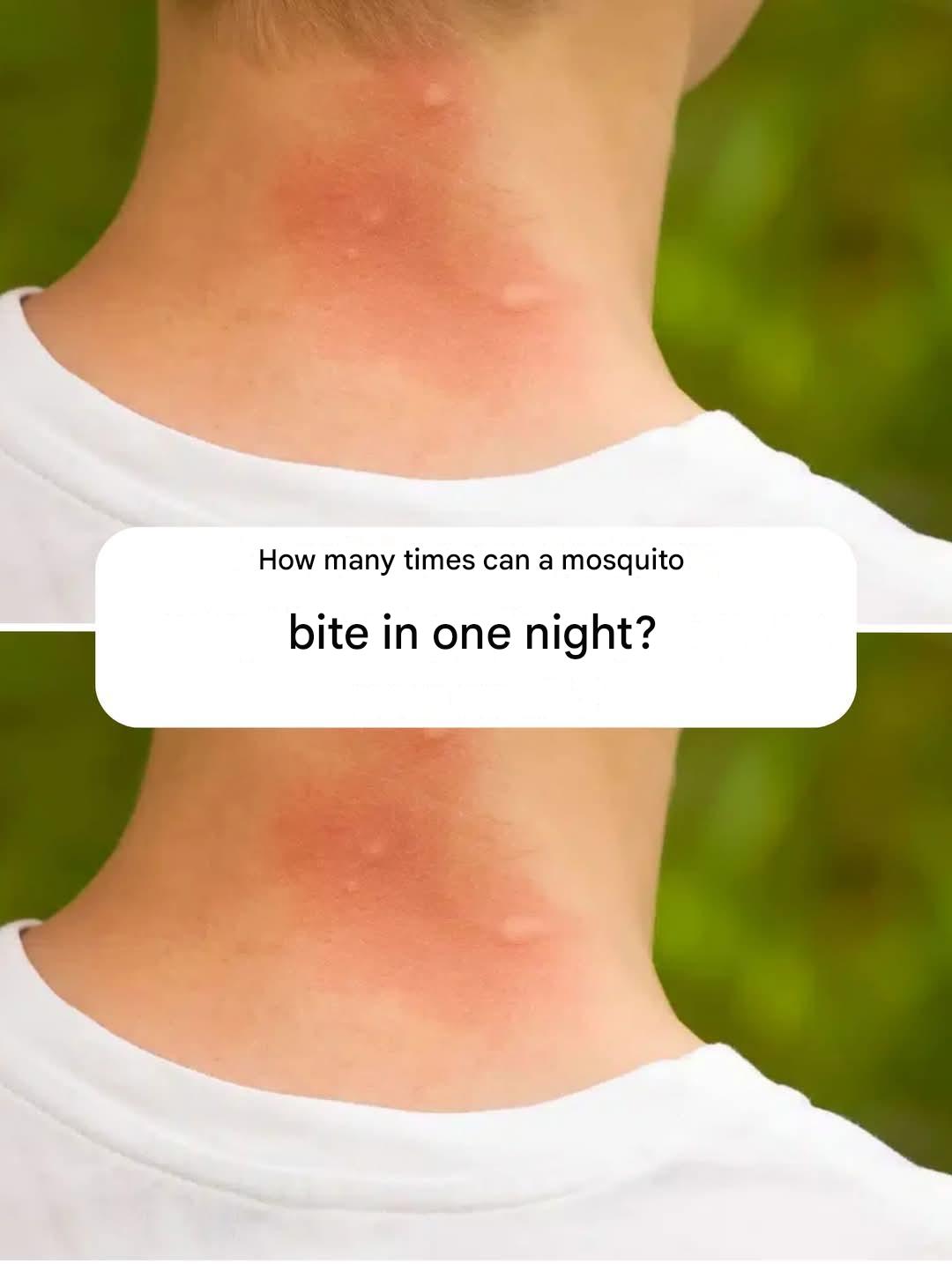ADVERTISEMENT
The question you’ve probably already asked yourself is: How many times can a mosquito bite you in one night? After hours of battling the buzzing and itching caused by these insects, it’s worth wondering how often they bite. This article will give you the exact answers.Summary
Why do mosquitoes bite?
Who is responsible for those itchy spots? The female mosquito. Unlike males, they need blood to develop their eggs. Without this “meal,” they cannot carry out their reproductive mission.
Mickaël Vannieuwenhuyse, a pest control expert, explains: “Mosquitoes are attracted to the carbon dioxide we exhale, our body heat and even our smell. These signals guide them like a GPS. Once they have located us, they attack.”
The collected blood serves as fuel for the maturation of the eggs. Once they are ready, the female seeks out a place with standing water in which to lay them. When she stings, she injects saliva containing anticoagulant substances that prevent blood from clotting and facilitate feeding. It is saliva that causes intense itching, prompting us to scratch.
Information
Which mosquitoes bite the most?
Female mosquitoes bite because they need blood to mature their eggs. But not all species are created equal: some are much more active than others. How often they bite also depends on region, climate, and dietary preferences. Here are some of the most pungent species:
Culex: This species is widespread in France and can carry West Nile virus. They are mainly active at night and feed discreetly while you sleep.
Aedes albopictus (tiger mosquito): Aggressive, active all day, bites repeatedly, often without eating at all.
Anopheles: Known for its role in spreading malaria. Bites mainly at the end of the day and at night.
Aedes japonicus: Discreet, cold-resistant mosquito, active day and night, capable of spreading viruses such as Japanese encephalitis and West Nile virus.
Aedes aegypti: This mosquito is found in Guadeloupe, Martinique and Guyana, attacks humans and is considered a carrier of dengue, Zika, yellow fever and chikungunya viruses.
Information
According to the WHO, Aedes mosquitoes are responsible for most dengue epidemics worldwide.
Mickaël Vannieuwenhuyse notes that “mosquito activity varies enormously depending on local conditions. Their behavior may therefore seem unpredictable in different places.”
To limit attacks, it is better to be proactive: repellents, long clothes and mosquito nets remain your best allies.
How often do mosquitoes bite at night?
Unlike bees, which leave their stingers in the skin and die when their abdomen bursts, female mosquitoes can bite as many times as they want. Their stings are not an act of defense: they simply want to feed.
A pest control expert explains: “Females only stop biting when they have enough blood to lay eggs. Until they are satisfied, they will continue to bite.”
After satisfying her hunger, the female takes a 2-3 day break to digest her food and lay her eggs. But don’t think you’re safe now: after laying her eggs, she’ll be ready to go hunting again.
Mosquito bites cause red, swollen, itchy lumps, but everyone reacts differently. This discomfort is caused by the mosquito’s saliva, rich in proteins that trigger an immune response: redness, swelling, and uncontrollable itching.
For Mickaël Vannieuwenhuyse, the most important thing is not to give in to the temptation to scratch: “It’s easier said than done, I know, but every time you scratch your nail, the inflammation gets worse. It’s best to quickly apply an ice cube or an antihistamine cream to calm everything down. “
Fortunately, these symptoms are usually mild and go away on their own over time. If the itching persists, a soothing cream or a little aloe may provide relief.
Continued on the next page
ADVERTISEMENT
